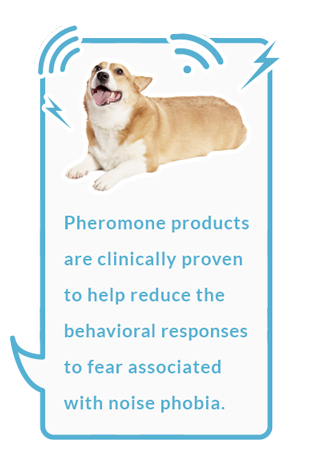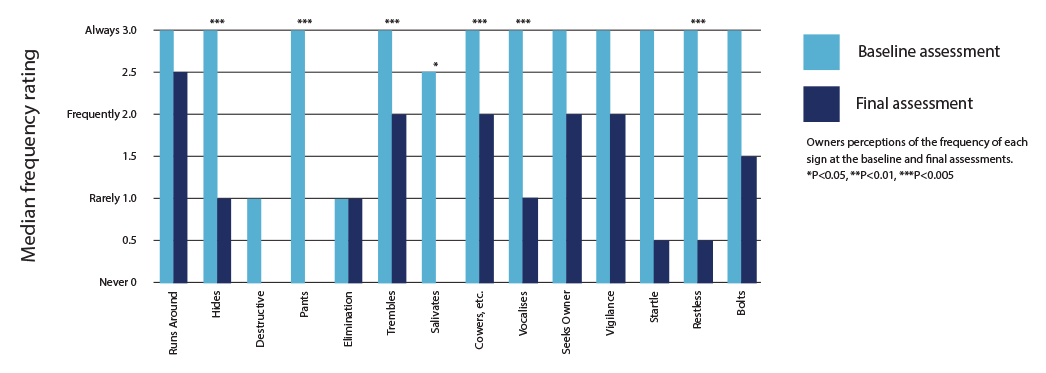How are pheromones detected?
- The vomeronasal organ (VNO), also called the Jacobson’s Organ, is responsible for the detection of pheromones.
- The opening to this organ is called the incisive papilla and is located just behind the dog’s incisors in the roof of the mouth. The pheromone enters the VNO, triggers nerve receptors which allows the nerves to conduct nerve impulses directly to the brain of the dog resulting in a behavior change.
Where do pheromones work?
- Pheromones affect the amygdala which is responsible for emotional learning and the fear response.
- Once the pheromone detecting nerves are triggered, impulses are sent to this area of the dog’s brain – helping to reduce the behavioral responses to fear.
How safe are pheromones?
- Pheromones never enter the systemic circulation and there are no known adverse effects of using them.
- They may also be safely combined with any additional management strategies, including medication, needed to help your noise phobic patient.


